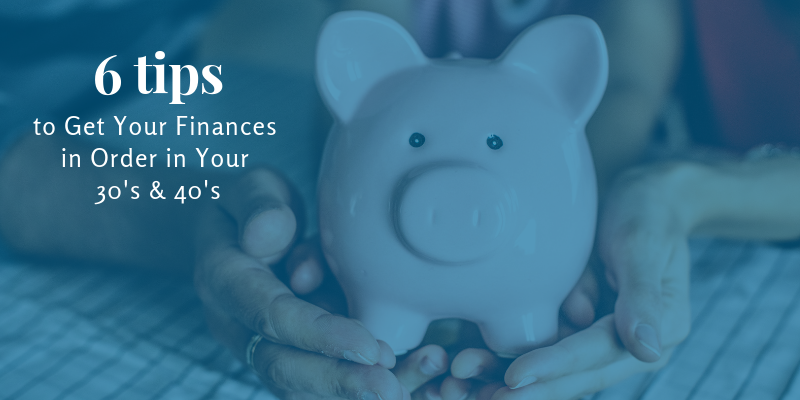6 Tips to Get Your Finances in Order in Your 30’s & 40’s

With you twenties behind you, your thirties and forties have the power to define your financial fortunes not just for now, but for many years to come. You don’t want financial stresses to ruin what can be some of the happiest days of your life, nor do you want to kick the financial can down the lane for later years. Here are a few tips to grips with your finances through the fabulous thirties and forties.
Make a will. Don’t sigh.
It’s a job that many of us put off. In fact more than 60% of adults in the UK don’t have a will. Perhaps that was fine when you were in your twenties and had nothing to pass on but a string of debts. But now it’s likely you’ll have assets that you want to pass on to your loved ones. Having a will takes a lot of stress out of an already stressful situation in the event of your passing, while at the same time possibly saving you thousands in expenses and taxes. If you already have a will, it’s a good idea to take another look at it to make sure it still reflects your wishes.
Boost your pension contributions
While you embark on the decades that are usually the peak earning period of life, make sure you’re putting away enough for later. Chances are it’s been a while since you last had a look at your pension, so maybe it’s time to reassess. If you’re earning more than you were five or ten years ago, it’s a good idea to up your contributions.
Carry on budgeting
You may be making more money than ever – that doesn’t mean you should stop budgeting. Some things never change. Wasting money on needless expenses like that overpriced daily coffee could be siphoning money from your long-term financial goals. Put some time aside to take a look at your expenses and find out where your money’s going. Once you’ve identified the needless expenses you can channel that money into something more beneficial.
Protect what you have
Use this time to take a look at your insurance plans. Protecting your assets against any eventuality is a must. Who wants all their hard work to go up in smoke? If you have little ones, it’s especially important to make sure that you’ll still be able to provide for your family whatever happens.
Review old policies and consider new ones. An increasingly popular avenue to explore is income protection. Let’s say an unexpected sickness or injury meant that you couldn’t work for a few weeks or months. Without insurance you’d most likely have to use your savings or state benefits to make ends meet. Yet with income protection you could still receive up to 70% of your monthly salary while you recoup. Makes a lot of sense. By definition you never know when something unexpected might happen.
Speak to a financial adviser
It can all start to become a bit confusing, right? Well, that’s where financial advisers can be a lot of help. During this critical financial period of your life you don’t want to make mistakes that could have serious repercussions later on. Seeking a little expert advice can give you peace of mind and the knowledge needed to make the right moves. They’ll be able to take a look at the bigger picture and plot a roadmap for a comfortable financial future.
Improve your credit score
Develop a good credit score by avoiding late payments and clearing debts as quickly as possible. A good credit score will save you money by encouraging lenders and insurers to give you a better deal when taking out loans or financial products.
Go Back